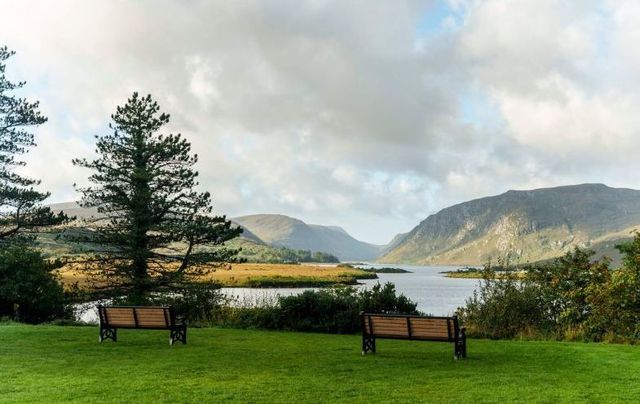The Irish National Seismic Network (INSN) said a 2.5 magnitude earthquake occurred at a depth of about 10km near Glenveagh National Park in Co Donegal at about 1:32 am on Saturday, May 6.
INSN, operated by Dublin Institute for Advanced Studies (DIAS), said it received reports of the event being felt throughout the Donegal area.
Felt M2.5 #earthquake on 6th May 01:32 in northern Donegal. Confirmed by INSN operated @DIAS_Dublin in co-operation with @GeolSurvIE. Details https://t.co/9jeCWUmofU @rtenews @IrishTimes @magicbathtub @Independent_ie @highlandradio @OceanFmIreland @dgldemocrat #DIASdiscovers pic.twitter.com/eqKkSa1BCv
— DIAS Geophysics (@dias_geophysics) May 6, 2023
DIAS later said that the Donegal quake was also detected by Raspberry Shake seismometers operated by citizens and schools in Ireland.
Last nights felt quake in Donegal also detected by Raspberry Shake seismometers operated by citizens and schools in Ireland @raspishake @DIAS_Dublin @GeolSurvIE #DIASdiscovers pic.twitter.com/7LxkeSjQB3
— DIAS Geophysics (@dias_geophysics) May 6, 2023
As of 12 pm on Monday, May 8, INSN said it had received about 250 reports of the Donegal event being felt or heard. The INSN is urging anyone who felt Saturday morning's earthquake to report it via this link.
The Derry Journal reports that Saturday's earthquake in Co Donegal is the joint largest onshore earthquake ever detected by the INSN, according to a catalog of seismic events that dates back to 1980. An earthquake of magnitude 2.5 was also recorded in Donegal on January 26, 2012.
Larger seismic events have been recorded offshore by the INSN.
In 2019, Donegal felt two earthquakes within the space of a month - a 2.4 magnitude quake on April 7, followed by a 2.1 magnitude earthquake on April 29.
Dr. Martin Möllhoff of DIAS told the BBC that Donegal is the most seismically active area in Ireland.
"Overall Ireland is seismically relatively quiet, a felt earthquake occurs on average about every two years," Möllhoff told the BBC.
Chris Bean, a senior professor of geophysics at DIAS, said smaller earthquakes happen in Ireland "all the time" but said Ireland is "not in a particularly tectonically active area of the world."
Bean told RTÉ News that it could be "hundreds" of years before Ireland experiences another earthquake of a 4.0 magnitude.
"We will have earthquakes of that size again, eventually, but the question is will they happen in a human lifetime or not?" Bean told RTÉ. "It could be hundreds of years before we will see something like that again. But the processes that led to that event are still in play, they're still ongoing."
Ireland's three earthquake hotspots are Donegal, Wexford, and the Irish Sea, although its strongest earthquakes have taken place offshore in the Atlantic Ocean.




Comments